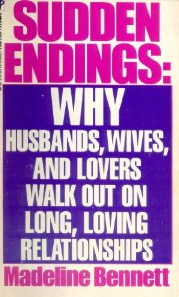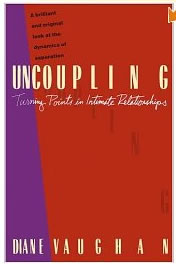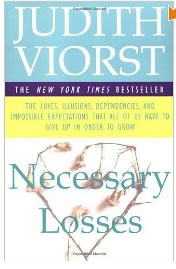Specialization: Spousal Abandonment
Divorce, Spousal Abandonment, Grief, Guilt, Anger, Depression and Loneliness
Spousal abandonment occurs when a marriage breakup is initiated by one partner (the leaver) suddenly, without just cause, and without warning as perceived by the other partner (the leavee). Often these marriages are long term (10 or more years) and have every outward appearance of having a long and happy future ahead of them. Before the breakup, the leavee together with friends and family may consider the marriage to be generally normal and perhaps even exceptionally happy. Such breakups are also known as "sudden endings." Unfortunately they are becoming more and more common for reasons sociologists are not yet able to explain.
Since marriage involves multiple dimensions -- identity, trust, family, spirituality, community and law in addition to expectations about the future, dreams, planning and investments both emotional and financial -- suddenly abandoned spouses sometimes describe their loss as being even more painful than the death of a loved one. Sudden abandonment without just cause involves a leaver's deceit, betrayal, the breaking of solemn vows, a lack of concern for the welfare of the leavee, and most frequently a lack of remorse. Abandoned spouses grieve deeply and experience a range of emotions including anger, loss of trust, fear, anxiety and depression over long periods of time. The timeline for "leavees" to heal from sudden endings is typically longer than that for mutual breakups, and many times longer than the readjustment time needed by "leavers."
Support for suddenly abandoned spouses is severely lacking in society at large and in the psychological help community. The depth and complexity of injury is frequently underestimated by friends, family and helping professionals who may not understand that abandoned spouses have a great deal more to handle than either the abandoning spouse or partners of a mutual marriage breakup. Not infrequently, the hurt is compounded by the misguided blame of children and other family members who view the "leaver" as a type of "winner" while the "leavee" is considered a type of "loser" who is therefore, somehow, more at fault for the breakup. People whom the abandoned spouse previously considered mutual friends during the marriage often abandon the "leavee," as well, as if they don't want to catch some sort of communicable "loser" disease, thus compounding the emotional pain. Many married couples are reluctant even to acknowledge that a sudden ending could be possible without guilt by both parties.
While good friends, family and even churches can offer support for a time, most abandoned spouses find themselves continuing to have trouble over a period of years while receiving "advice" which is both unhelpful and inappropriate -- such as, "It's time to just get over it. You've got to move on with your life," or, "You must have done something. After all, it takes two to break up a marriage," or, "There are always two sides to a story."
In fact, it does take two to make a marriage work. But it only takes one to destroy it. It's not that poor advice or contextually demeaning platitudes are badly intended; it's just that most people don't understand the depth, scope or complexity of such an event and, in any case, are neither in a position to offer sustained or effective help nor possess the necessary skills and experience.
NOTE:
Unfortunately for many 'leavees,' just at the time they could use my (or some other experienced professional's) services the most as they endeavor to recreate their lives and heal, they are also dealing with financial hardships that preclude my services even at a deeply discounted rate. Think at least 18 months of weekly 2-hour sessions. At any reasonable, professional rate, that adds up. (Insurance does not cover NLP sessions). I wish I could lower my rates even more for them, but realistically, for me, that is not an option.
I recommend that 'leavees' do a deep web search for inexpensive opportunities to talk with others, especially in person if that is possible. Many counties have free counselors who are well trained, and many self help groups such as "ACA", while not necessarily directly relevant to the "leavee's" experiences they do offer places to speak your truth and be heard in a safe environment. It may take some searching across many venues and helpers, but persistence may produce helpful connections. Beginning NLP Practitioners may also have a wealth of life experience to offer and may be willing to help for free or at very low rates. Consider contacting your local NLP training institutes for referrals.
Stay tuned to this website. I may have additional, inexpensive resources coming soon.
-- John
. . .
Recommended Reading:
Book: Sudden Endings, by Madeline Bennett, 1992
Book: Uncoupling: Turning Points in Intimate Relationships, by Diane Vaughn, 1990
Book: Necessary Losses, by Diane Vaughn, 1998
. . .


